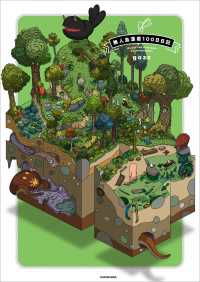Full Description
This book describes the pedagogical foundations of the Roskilde Model of education and educational design. It presents knowledge about how principles of problem-oriented, interdisciplinary and participant-directed project work may serve as a basis for planning and applying educational activities at institutions of higher learning. It discusses the dilemmas, problems, and diverging views that have challenged the model, provoking experiments and reforms that have helped develop practice without compromising the key principles.
The Roskilde Model combines various student-centered learning concepts into a nexus, providing the foundation for a consistent pedagogical practice that is strongly supported by the educational structure and the academic profile of the university.
A complex concept, the Roskilde Model refers to three different aspects: The first one is problem-oriented interdisciplinary and participant-directed project work (PPL). At Roskilde University, half of all study activities are organized in line with this particular pedagogical approach. The second aspect the model refers to is the organizing of university education on the basis of four interdisciplinary bachelor programmes. These programmes are part of the humanities, social sciences, natural sciences, and humanistic-technological sciences and give admission to two-year master programmes in a broad range of disciplines. The third aspect the model refers to is the interdisciplinary academic and educational profile of the university.
Contents
Foreword.- Preface.- Contributors to this Volume.- Part 1: Roskilde University as a Pedagogical Alternative.- 1. Theoretical Foundations of PPL at Roskilde University; Anders Siig Andersen and Tinne Hoff Kjeldsen.- 2. A Critical Review of the Key Concepts in PPL; Anders Siig Andersen and Tinne Hoff Kjeldsen.- 3. Case Analysis of some Critical Factors in Relation to Learning Outcomes of PPL - the Formation of Flint; Tinne Hoff Kjeldsen and Anders Siig Andersen.- Part 2: Roskilde University as an Educational Alternative.- 4. Historical Transformations within Danish Higher Education; Anders Siig Andersen.- 5. The History of Roskilde University; Anders Siig Andersen.- 6. The Bachelor Programmes and the Roskilde Model; Morten Blomhøj, Thyge Enevoldsen, Michael Haldrup and Niels Møller Nielsen.- 7. The Master Programmes and the Roskilde Model; Hanne Leth Andersen.- Part 3: PPL in Practice.- 8. Supervising Projects; Anders Siig Andersen and Søren Dupont.- 9. Methodological Challenges - from a Supervisor's Experiences; Inger Jensen.- 10. Genre and Voice in Problem-oriented Project Reports; Sanne Knudsen.- 11. PPL in Intercultural Settings; Karsten Pedersen.- Part 4: Students' Experiences and External Relations.- 12. Experiencing PPL - the Student View; Kasper Bjerring Petersen and Morten Brandrup.- 13. External Relations: Bridging Academia and Practice; Hanne Leth Andersen.- Part 5: Pedagogical Experiments in PPL.- 14. Research Learning - How Students and Researchers Learn from Collaborative Research; Trine Wulf-Andersen, Peder Hjort-Madsen and Kevin Holger Mogensen.- 15. Restructuring the Project Work Format: The Anthology Experiment; Søren Dupont.- 16. Supporting Project Work with Information Technology; Simon B. Heilesen.- Part 6: Outlook.- 17. The Roskilde Model and the Challenges for Universities in the Future; Henning Salling Olesen and Anders Siig Andersen.- Appendix: Roskilde University at a Glance.





